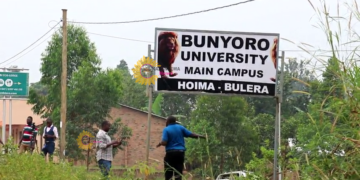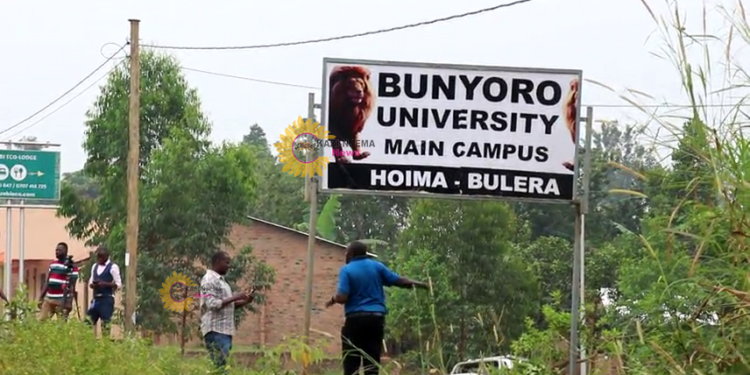Parliament has passed the national budget for the Financial Year 2024/2025, approving a total expenditure of Shs72.136 trillion following the passing of the Appropriations Bill 2024 on Thursday, 16 May 2024, reflecting a significant increase of Shs14.050 trillion from the initial budget proposal of Shs58.34 trillion.
The budget comprises recurrent expenditure of Shs18.9 trillion and development expenditure of Shs34.7 trillion, with the total amount including statutory expenditure standing at Shs72.136 trillion.
During the lengthy plenary sitting presided over by Speaker Anita Among that started at 10.00 a.m. and ended towards midnight, Members of Parliament took turns to argue for and against what they believed was best for the country.
The biggest portion of the budget, Shs32.3 trillion, will be sourced from domestic revenue (tax and non-tax revenue), while other sources include budget support (grants and loans) of Shs1.3 trillion and domestic financing (domestic borrowing) of Shs8.9 trillion.
Additional sources include project support of Shs 9.5 trillion and domestic debt refinancing (rollover) of Shs19.8 trillion.
From the above resource envelope, Shs3.1 trillion is allocated for external debt repayment, Shs9.5 trillion for project support, Shs12 trillion for domestic refinancing, Shs9 trillion for interest payments, Shs293.9 billion for appropriation in aid, Shs603 billion for Bank of Uganda recapitalisation, Shs200 billion for domestic arrears, and Shs9.1 trillion for domestic debt repayment under Bank of Uganda, take a first expenditure call.
The breakdown of the budget highlights key priorities and allocations for various sectors. Human capital development emerged as the top priority, receiving Shs9.9 trillion (26.3 percent of the budget) for investments in education, healthcare, and skills development.

Hon. Remigio Achia presenting the Report of the Budget Committee
Governance and security was allocated Shs9.1 trillion (24.2 percent of the budget) to bolster law enforcement and national security measures. Additional allocations include Shs5.1 trillion for integrated transport infrastructure and services, Shs2.3 trillion for development plan implementation, and Shs2.0 trillion for private sector development.
Significant investments were also directed towards key sectors and initiatives, including sustainable energy development (Shs1.0533 trillion), administration of justice (Shs481.4 billion), legislation, oversight, and representation (Shs978.6 billion), climate change and environment management (Shs682.6 billion), and Digital Transformation (Shs230.9 billion).
Presenting the report, the Deputy Chairperson of the Budget Committee, Hon. Remigio Achia, emphasised the need to strike a balance between infrastructure and human capital development as well as re-engage development partners, especially under the programme of human capital development. “Investments in social sectors, especially health, education, and social protection, have a direct impact on poverty and income inequality,” Achia, also Pian County MP, stated.
Achia also highlighted an allocation of Shs362 billion towards the Uganda Secondary Education Expansion Project for the construction of 60 seed schools in sub-counties without secondary schools and the expansion of 61 existing government secondary schools, with special consideration for refugee-hosting districts and transfers to the Uganda National Examinations Board to facilitate the equating of student refugee results.
The Minister of State for Finance, Planning, and Economic Development (General Duties), Hon. Henry Musasizi, provided insights into budget financing, stating, “Shs34.3 trillion is for appropriation and Shs37.8 trillion is statutory.”
The budget will be financed through domestic revenue, budget support, petroleum fund transfers, and other sources.
In his remarks, Hon. Musasizi emphasised the strategic focus of budget investments on peace and security initiatives, road maintenance, railway rehabilitation, and construction projects.

Hon. Ssemujju Ibrahim Nganda (L) and Minister Henry Musasizi
Notable allocations include funding for the Hoima and Akii-Bua stadia construction ahead of hosting the African Cup of Nations in 2027 and the initiation of the Standard Gauge Railway construction.
Shs30 billion has also been allocated to kick-start the process of establishing Busoga and Bunyoro universities.
“The investments shall be directed towards peace and security, maintenance of roads and construction of a few strategic ones as well as rehabilitation of the metre gauge railway and construction of standard gauge railway,” Musasizi said.
The budget approval process also saw parliamentary discussions and perspectives from Members of Parliament, including concerns over public debt raised by Hon. Ibrahim Ssemujju Nganda (FDC, Kiira Municipality, Wakiso), who noted, “Next financial year we are going to spend Shs 34 trillion servicing a debt and yet the country thinks we are processing a budget.”
Hon. Theodore Ssekikubo (NRM, Lwemiyaga County) expressed surprise over the addition of Shs14 trillion to the budget.
Meanwhile, Hon. Geofrey Ekanya (FDC, Tororo North County) defended the move to increase the budget, stating that Members of Parliament had pleaded for funding for local councillors’ ex-gratia.











